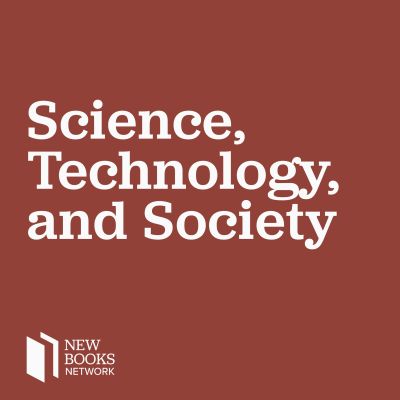Interviews with Scholars of Science, Technology, and Society about their New Books Support our show by becoming a premium member! https://newbooksnetwork.supportingcast.fm/science-technology-and-society
https://newbooksnetwork.com
Gesamtlänge aller Episoden: 88 days 18 hours 50 minutes
Paul Barrett, “Glock: The Rise of America’s Gun” (Broadway, 2013)
History is in many respects the story of humanity’s quest for transcendence: to control life and death, time and space, loss and memory. When inventors or companies effectively tap into these needs products emerge that help define their times.
Alexandra Hui, “The Psychophysical Ear: Musical Experiments, Experimental Sounds, 1840-1910” (MIT Press, 2013)
In The Psychophysical Ear: Musical Experiments, Experimental Sounds, 1840-1910 (MIT Press, 2013), Alexandra Hui explores a fascinating chapter of that history in a period when musical aesthetics and natural science came together in the psychophysical s...
Nicholas Popper, Walter Ralegh’s History of the World and the Historical Culture of the Late Renaissance (University of Chicago Press, 2012)
Nicholas Popper‘s new book is a thoughtfully crafted and rich contribution to early modern studies, to the history of history, and to the history of science. Walter Ralegh’s History of the World and the Historical Culture of the Late Renaissance (Unive...
Sean Cocco, “Watching Vesuvius: A History of Science and Culture in Early Modern Italy” (University of Chicago Press, 2013)
The story starts on a high-speed train and ends with six men in a crater, with hundreds of years and a number of explosions in between. Sean Cocco‘s rich new book uses Vesuvius as a focal point for exploring the histories of natural history, travel,
Lawrence M. Principe, “The Secrets of Alchemy” (University of Chicago Press, 2012)
What is alchemy? Who were the alchemists, what did they believe and do and dream, and what did they accomplish? Lawrence M. Principe‘s new book explores these questions and some possible answers to them in a wonderfully written and argued introduction ...
Matthew Wisnioski, “Engineers for Change: Competing Visions of Technology in 1960s America” (MIT Press, 2012)
In his compelling and fascinating account of how engineers navigated new landscapes of technology and its discontents in 1960s America, Matthew Wisnioski takes us into the personal and professional transformations of a group of thinkers and practitione...
E. C. Spary, “Eating the Enlightenment: Food and the Sciences in Paris, 1670-1760” (University of Chicago Press, 2012)
By focusing on food and eating from the dinner table to the laboratory, E. C. Spary‘s new book shows how an increasingly public culture of knowledge shaped the daily lives of literate Parisians in the late seventeenth and eighteenth centuries.
Deborah R. Coen, “The Earthquake Observers: Disaster Science from Lisbon to Richter” (University of Chicago Press, 2012)
Deborah R. Coen‘s new book chronicles how the earthquake emerged and receded as a scientific object through the nineteenth and twentieth centuries. Half of the chapters in The Earthquake Observers: Disaster Science from Lisbon to Richter (University of...
Audra J. Wolfe, “Competing with the Soviets: Science, Technology, and the State in Cold War America” (Johns Hopkins, 2013)
Audra Wolfe‘s new book, Competing with the Soviets: Science, Technology, and the State in Cold War America (John Hopkins University Press, 2013) offers a synthetic account of American science during the Cold War.
Joel Isaac, “Working Knowledge: Making the Human Sciences from Parsons to Kuhn” (Harvard UP, 2012)
Imagine the academic world as a beach. The grains of sand making up the beach are the departments, institutes, and other bodies and related gatherings that make up the officially sanctioned parts of academic institutions and academic life.
